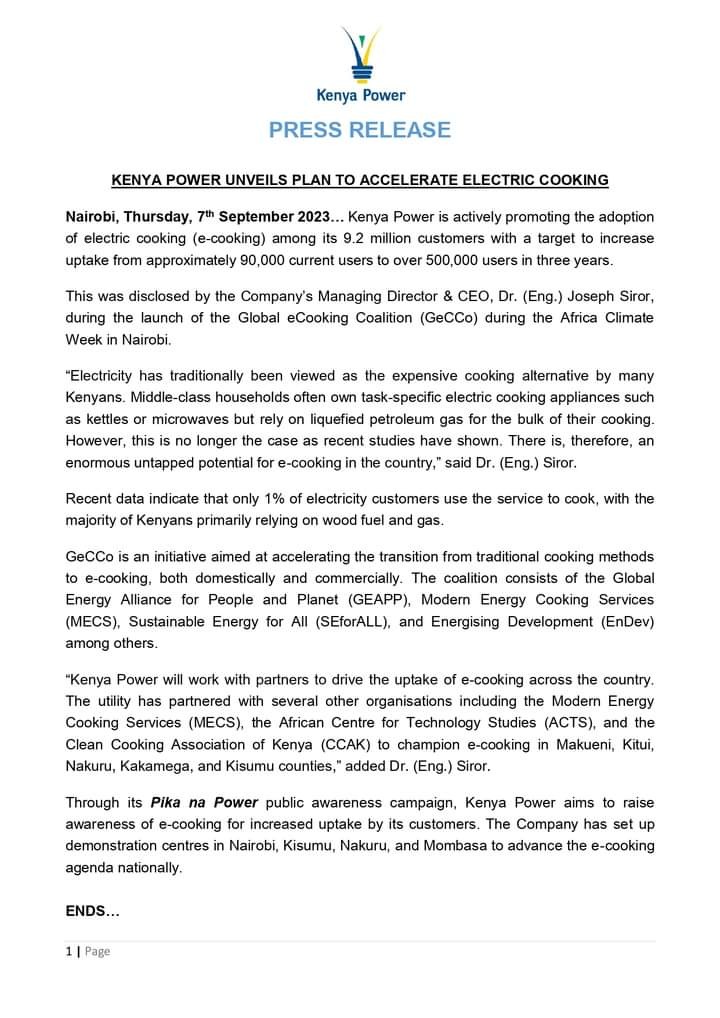Kenya Power is taking active steps to promote the adoption of electric cooking (e-cooking) among its 9.2 million customers, with an ambitious goal of increasing the current user base of approximately 90,000 to over 500,000 within three years. This initiative was announced by the company’s Managing Director and CEO, Joseph Siror, during the launch of the Global eCooking Coalition (GeCCo) at the Africa Climate Week in Nairobi.
Traditionally, electricity in Kenya has been perceived as an expensive cooking alternative, with many households, especially those in the middle class, relying heavily on liquefied petroleum gas for cooking. However, recent studies have challenged this perception, revealing the untapped potential of e-cooking in the country. Currently, only 1% of electricity customers in Kenya use it for cooking, while the majority continue to rely on wood fuel and gas.
GeCCo, an initiative aimed at accelerating the transition from traditional cooking methods to e-cooking, involves various organizations such as the Global Energy Alliance for People and Planet (GEAPP), Modern Energy Cooking Services (MECS), Sustainable Energy for All (SEforALL), and Energising Development (EnDev), among others.
Kenya Power is collaborating with these partners to drive the adoption of e-cooking across the country, focusing on regions like Makueni, Kitui, Nakuru, Kakamega, and Kisumu counties. They have also launched a public awareness campaign called “Pika na Power” to educate their customers about the benefits of e-cooking.

To showcase the advantages of e-cooking, the company has established demonstration centers in major cities like Nairobi, Kisumu, Nakuru, and Mombasa. These centers serve as hubs for educating the public and providing hands-on experiences with electric cooking appliances.
Kenya Power’s commitment to promoting e-cooking not only aligns with the global push for sustainable energy solutions but also addresses the local challenges associated with traditional cooking methods, such as deforestation and air pollution. Through partnerships, awareness campaigns, and demonstration centers, they are striving to transform the way Kenyans cook and reduce the environmental impact of cooking practices across the country.